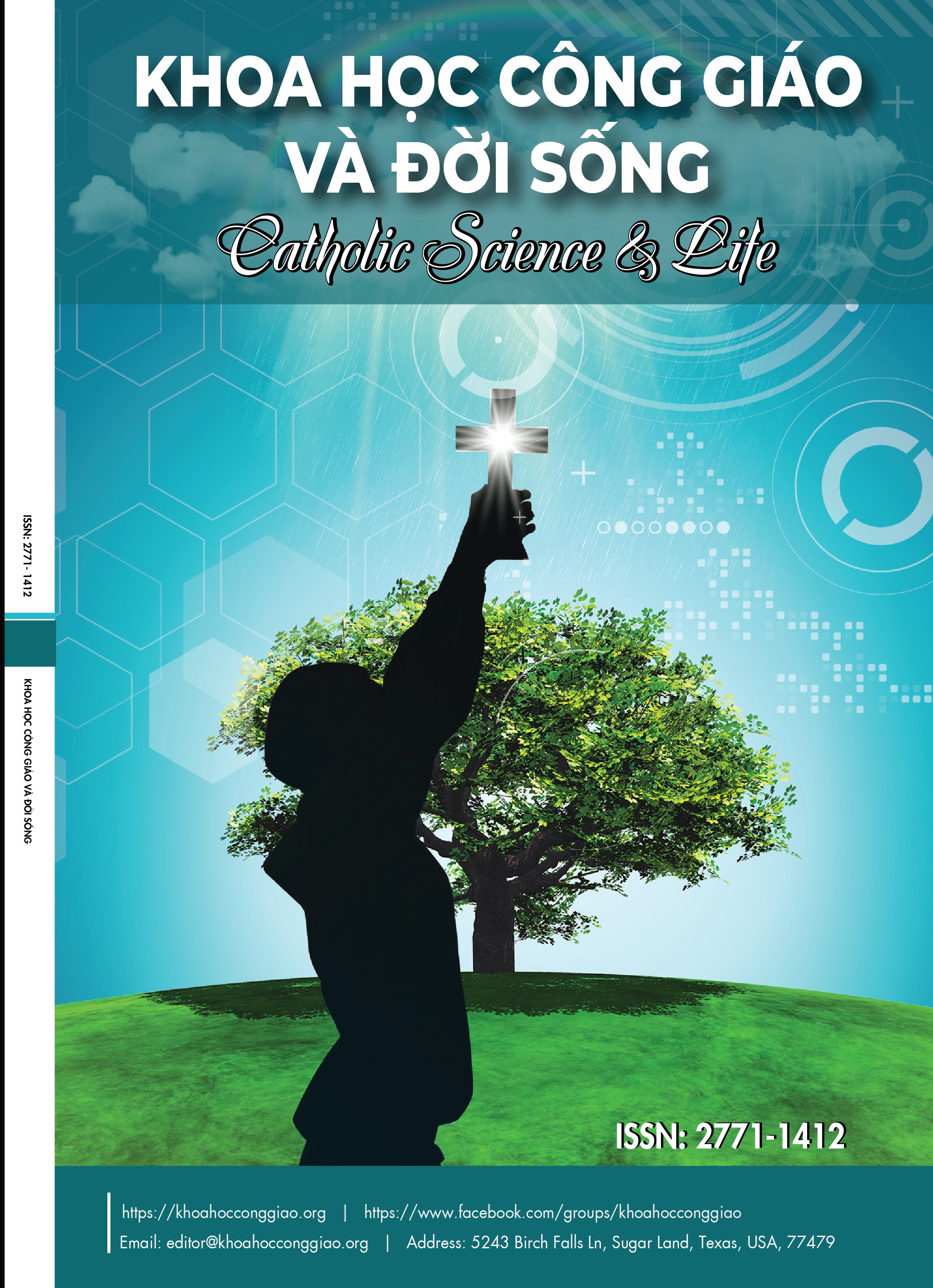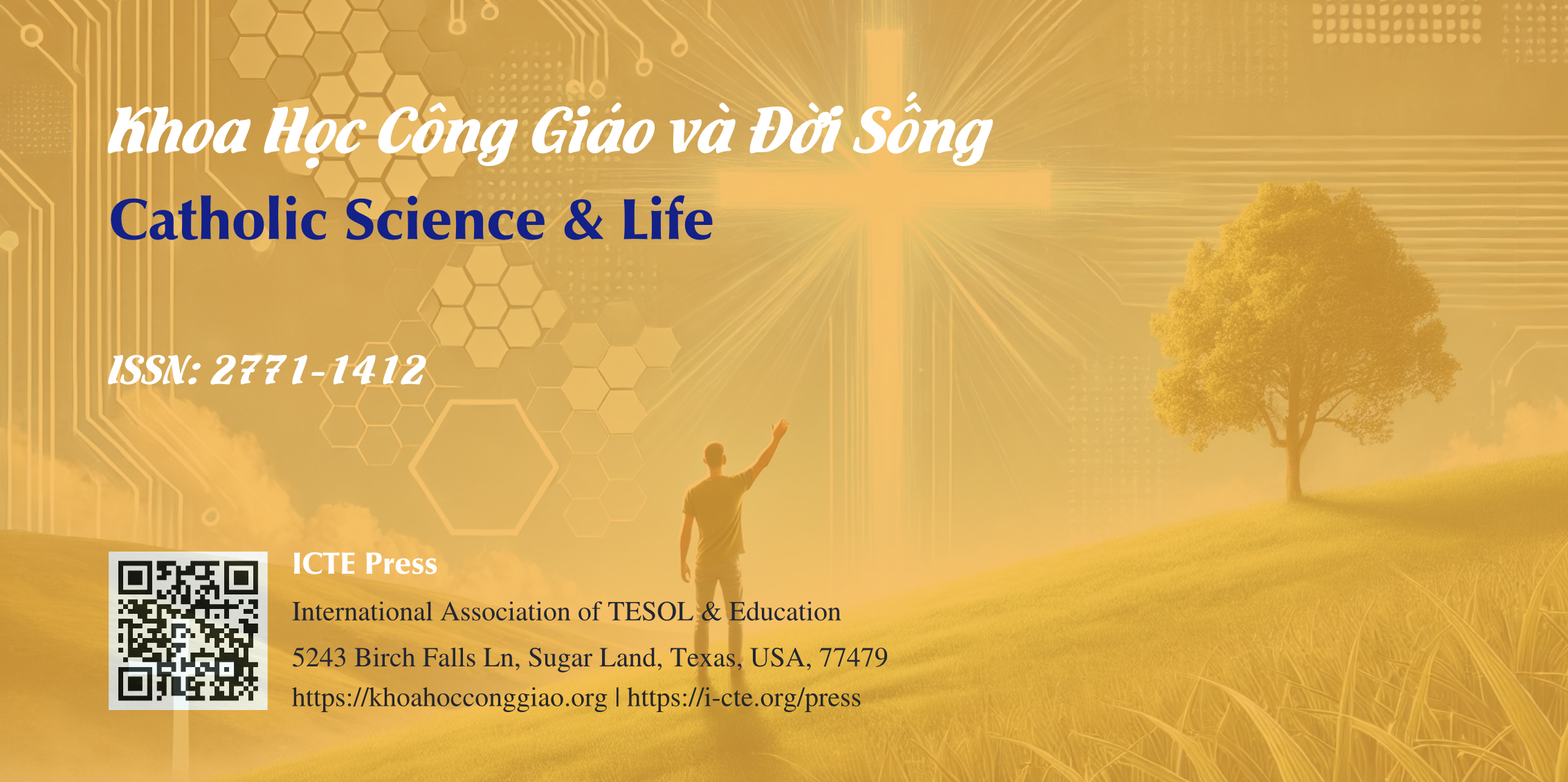Có Một Lẽ Sống Tự Ngàn Xưa - Một Lối Nhìn về Con Người trong Tư Tưởng của Origen
A Principle of Life since Ancient Times - A Perspective on Humanity in the Thought of Origen
DOI:
https://doi.org/10.54855/csl.23321Từ khóa:
Origen, lẽ sống, mục đích tối hậu, Thiên ChúaTóm tắt
Lẽ sống là nguyên lý mà con người phải sống theo để được hạnh phúc. Origen quan niệm vạn vật có hai bản chất: bản chất hữu hình và bản chất vô hình, ứng với lẽ sống của thân và của tâm. Với bộ não của một triết gia cần mẫn và con tim của một tín hữu sùng đạo, Origen dường như đã tìm kiếm và tìm thấy lẽ sống tối hậu cho riêng mình. Dù xem mọi tạo vật là tốt đẹp nhưng Origen cũng tìm ra một trật tự khác dẫn con người đến sự sống thật. Đó là trật tự của Thân-Tâm-Chúa nơi nội tâm con người: Lẽ sống của thân phải phục vụ của tâm, và lẽ sống của tâm phải phục vụ Thiên Chúa. Nghĩa là, đòi hỏi của thân xác phải tùng phục những giá trị của tinh thần; và giá trị tinh thần tối hậu là phải hướng đến việc phục vụ Hóa Công; và việc phục vụ Hóa Công đạt đến viên mãn khi con người để lý trí của mình được soi sáng bởi Kinh Thánh và để ý chí tự do của mình tùng phục hoàn toàn vào Đức Ki-tô được mặc khải nơi Thánh Kinh. Lẽ sống này không chỉ ích lợi cho riêng Origen, mà, theo thiển ý của người viết, còn ích lợi cho con người mọi thời, thuộc mọi tôn giáo.
Abstract
The principle of life is what humans must live by in order to achieve happiness. Origen believed that everything has two natures: a tangible nature and an intangible nature, corresponding to the life principles of the body and the mind. With the mind of a philosopher and the heart of a devout believer, Origen seemed to search for and find the ultimate principle of life for himself. Although he regarded all creatures as good, Origen also discovered a different order that leads humans to true life. It is the order of Body-Mind-God within the inner being of humans: The life principle of the body must serve the mind, and the life principle of the mind must serve God. This means that the demands of the physical body must conform to the values of the spirit, and the ultimate value of the spirit is to serve the Divine Work; and serving the Divine Work is fulfilled when human beings enlighten their intellect with the Bible and completely surrender their free will to Christ revealed in the Holy Scriptures. This principle of life is not only beneficial for Origen himself but, according to the intention of the author, also beneficial for all people of all times and religions.
Tài liệu tham khảo
Origen and Hans Urs Von Balthasar (1979), Origen: An Exhortation to Martyrdom, Prayer, and Selected Works, trans. Rowan A. 5-6. Greer New York: Paulist Press.
Lê Văn Đức và các bạn biên soạn (1970). Việt Nam Tự Điển. Sài Gòn: Nhà sách Khai Trí.
Hans Urs von Balthasar, ed. (2001). Origen: Spirit and Fire: A Thematic Anthology of His Writings, trans. Robert J. Daly (Washington, D.C.: The Catholic University of America Press, 2001), 42.
Samuel Enoch Stumpf (2004). Lịch Sử Triết Học và Các Luận Đề (Hà Nội: Nxb. Lao Động, 2004), 105-110.
Hội Đồng Thần Học Quốc Tế (ITC) (2014). Sensus Fidei in the Life of the Church.
I-nhã, Linh Thao, chuyển dịch: Lê Quang Chủng (Nhà Tập Thánh Tâm, 2008).
Tòa thánh Vatican (2009). Sách Giáo Lý của Hội Thánh Công Giáo, Ủy Ban GLĐT – HĐGMVN chuyển dịch. Hà Nội: Nxb Tôn Giáo, số 1776.
Tải xuống
Đã Xuất bản
Số
Chuyên mục
Giấy phép
Bản quyền (c) 2023 Phaolo Nguyễn Hữu Phong, S.J.

Tác phẩm này được cấp phép theo Giấy phép quốc tế Creative Commons Attribution-NonCommercial 4.0 .
Authors retain copyright and grant the journal the right of first publication with the work simultaneously licensed under a Creative Commons Attribution 4.0 International License that allows others to share the work with an acknowledgment of the work's authorship and initial publication in this journal.
Authors are able to enter into separate, additional contractual arrangements for the non-exclusive distribution of the journal's published version of the work (e.g., post it to an institutional repository, in a journal or publish it in a book), with an acknowledgment of its initial publication in this journal.













